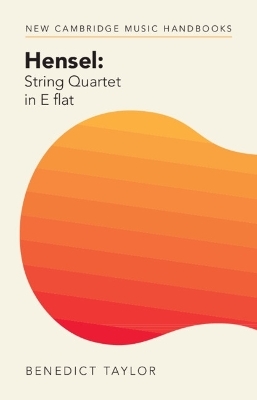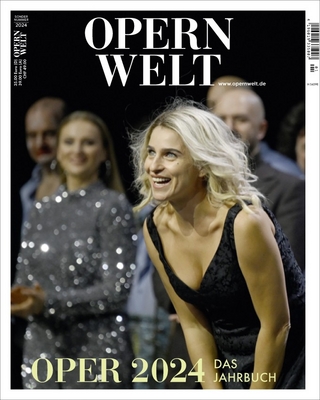
Hensel: String Quartet in E flat
Seiten
2023
Cambridge University Press (Verlag)
978-1-316-51384-2 (ISBN)
Cambridge University Press (Verlag)
978-1-316-51384-2 (ISBN)
Fanny Hensel's String Quartet in E flat major (1834) is one of her most ambitious and individual compositions. Contextualising it within wider scholarly discussion about female composers' music, Benedict Taylor explores the unique qualities of Hensel's piece and shows how it responded to the most progressive works of the time.
The String Quartet in E flat major (1834) by Fanny Hensel, née Mendelssohn, is one of the most important works by a female composer written in the nineteenth century. Composed at a turning point in her life (as Hensel was not only grappling with her own creative voice but also coming to terms with her identity as a married woman, and the role her family expected of her), the quartet is significant in showing a woman composing in a genre that was then almost exclusively the domain of male artists. Benedict Taylor's illuminating book situates itself within developing scholarly discourse on the music of women composers, going beyond apologetics – or condemnation of those who hindered their development – to examine the strength and qualities of the music and how it responded to the most progressive works of the period.
The String Quartet in E flat major (1834) by Fanny Hensel, née Mendelssohn, is one of the most important works by a female composer written in the nineteenth century. Composed at a turning point in her life (as Hensel was not only grappling with her own creative voice but also coming to terms with her identity as a married woman, and the role her family expected of her), the quartet is significant in showing a woman composing in a genre that was then almost exclusively the domain of male artists. Benedict Taylor's illuminating book situates itself within developing scholarly discourse on the music of women composers, going beyond apologetics – or condemnation of those who hindered their development – to examine the strength and qualities of the music and how it responded to the most progressive works of the period.
Benedict Taylor is Reader at the Reid School of Music, University of Edinburgh. Publications include Mendelssohn, Time and Memory: The Romantic Conception of Cyclic Form (2011), The Melody of Time: Music and Temporality in the Romantic Era (2016), and Music, Subjectivity, and Schumann (2022).
1. Introduction; 2. Background; 3. Genesis and private reception; 4. First movement: Adagio ma non troppo; 5. Second movement: Allegretto; 6. Third movement: Romanza; 7. Finale: Allegro molto vivace; 8. Responding to the Quartet.
| Erscheinungsdatum | 21.11.2023 |
|---|---|
| Reihe/Serie | New Cambridge Music Handbooks |
| Zusatzinfo | Worked examples or Exercises |
| Verlagsort | Cambridge |
| Sprache | englisch |
| Maße | 141 x 222 mm |
| Gewicht | 310 g |
| Themenwelt | Kunst / Musik / Theater ► Musik ► Klassik / Oper / Musical |
| ISBN-10 | 1-316-51384-X / 131651384X |
| ISBN-13 | 978-1-316-51384-2 / 9781316513842 |
| Zustand | Neuware |
| Informationen gemäß Produktsicherheitsverordnung (GPSR) | |
| Haben Sie eine Frage zum Produkt? |
Mehr entdecken
aus dem Bereich
aus dem Bereich
Mozart und der Abschied von der Aufklärung
Buch | Hardcover (2024)
C.H.Beck (Verlag)
28,00 €


